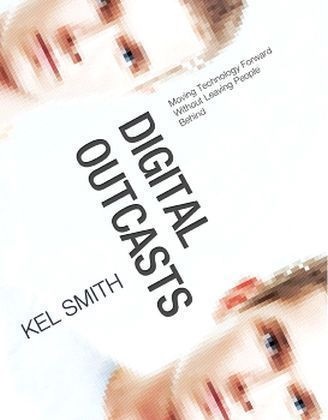Read more
Informationen zum Autor Kel Smith is a speaker, author, instructor, and practitioner with 20+ years’ experience in the design and technology sectors. His articles have appeared in SAGE World Future Review , Universal Access in the Information Society , International Journal of E-Politics , UX Magazine , and The Practical Lawyer , among others. He launched Aisle Won, a nutrition support app that connects low-income populations with sources of accessible and affordable locally grown food. Smith regularly presents on digital accessibility and social innovation, including for the Centre for Health Literacy, the Royal National Institute of the Blind, the Art Institute of Chicago, Universitat Autònoma de Barcelona, and Stanford University, and has featured on CBC Radio and the BBC. He sits on the board of Inglis Foundation, the Philadelphia region’s largest provider of accessible health services, and served as Vice Chair of the Philadelphia chapter of ACM/SIG-CHI. He is an adjunct lecturer at Rutgers University, teaching courses on digital design and the social impact of inclusive innovation. Klappentext In today's world, as audiences get older, more people with disabilities, such as vision impairment or limited mobility, turn to digital resources for research or help. As the companies who support these teams have a tendency to drive innovation in a vacuum, this book helps to enlighten UX designers to this plight. Tapping into the energy and growing demographic, you'll learn how companies are able to devise personalized solutions using mobile apps, video games, and more.This book reviews case studies and key trends in technology, examines the relevance to forgotten populations, reviews the legal and cultural impact of inclusive technology, and helps guide readers through to a future in which ambient benefit can be achieved for people of all abilities and backgrounds. Readers gain a better understanding of how disenfranchised populations use technology and discover the common pitfalls and approaches to be able to stay current in their UX practices. Inhaltsverzeichnis Introduction 1. Who Are Digital Outcasts? 2. Interpreting Ability 3. Defining Innovation 4. Why Accessibility Alone Doesn't Matter 5. Playing for Health 6. Universal Life: Rise, Fall and Rise of Virtual Worlds 7. New Frontiers in Technology 8. Designing for the Digital Outcast Appendices Index Acknowledgements Credits...
List of contents
Introduction
1. Who Are Digital Outcasts?
2. Interpreting Ability
3. Defining Innovation
4. Why Accessibility Alone Doesn't Matter
5. Playing for Health
6. Universal Life: Rise, Fall and Rise of Virtual Worlds
7. New Frontiers in Technology
8. Designing for the Digital Outcast
Appendices
Index
Acknowledgements
Credits
Report
"The intended reader is anyone attempting to either create more accessible technology for use by the disabled, or has an interest in novel ways that things like virtual reality, computer games, and assistive devices can be used in medicine to treat a variety of disabilities and assist in patient rehabilitation. The book concludes with a series of chapters on socially and environmentally responsible design and thinking ahead to the future in which digital devices will become ever more integrated into daily life and even the human body itself." --Reference & Research Book News, December 2013
"Kel Smith makes a significant contribution to the subject of user experience in this easily read but important treatise. the book makes a compelling case for universal design, a concept far more expansive than the more common notion of handicapped-accessible technology.The information here will be challenging and profitable, not only for designers but also for anyone associated with advancing computer technology." --ComputingReviews.com, November 13, 2013
"The book provides a detailed overview of how people with disabilities use technology. More importantly, it shows that creating effective user interfaces for those with disabilities is beneficial for all users.Smith writes that for accessibility to work, it has to be an enterprise initiative. He provides 8 strategic steps to doing that.This book is an important read for everyone." --Slashdot.org, November 25, 2013
"This is a wise book that accepts that disability, like ability, is abounding with nuances and variation, and Smith admits that it is behaviour that has to be focused upon rather than any device.Smith draws this excellent book to a close with the ethics surrounding the technology, along with current and future developments." --BCS online, November 2013

